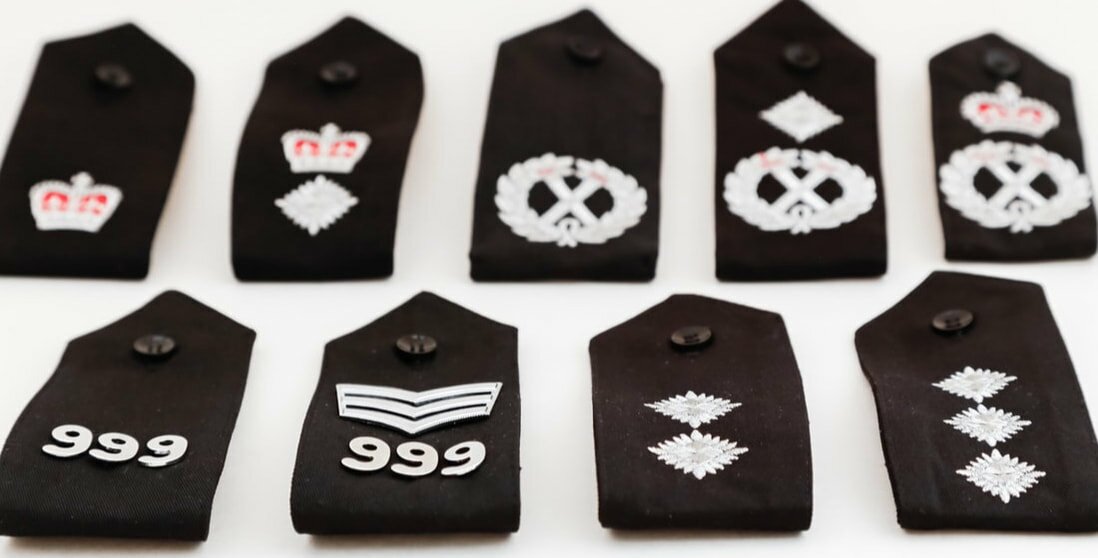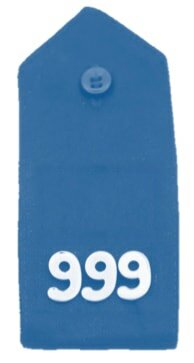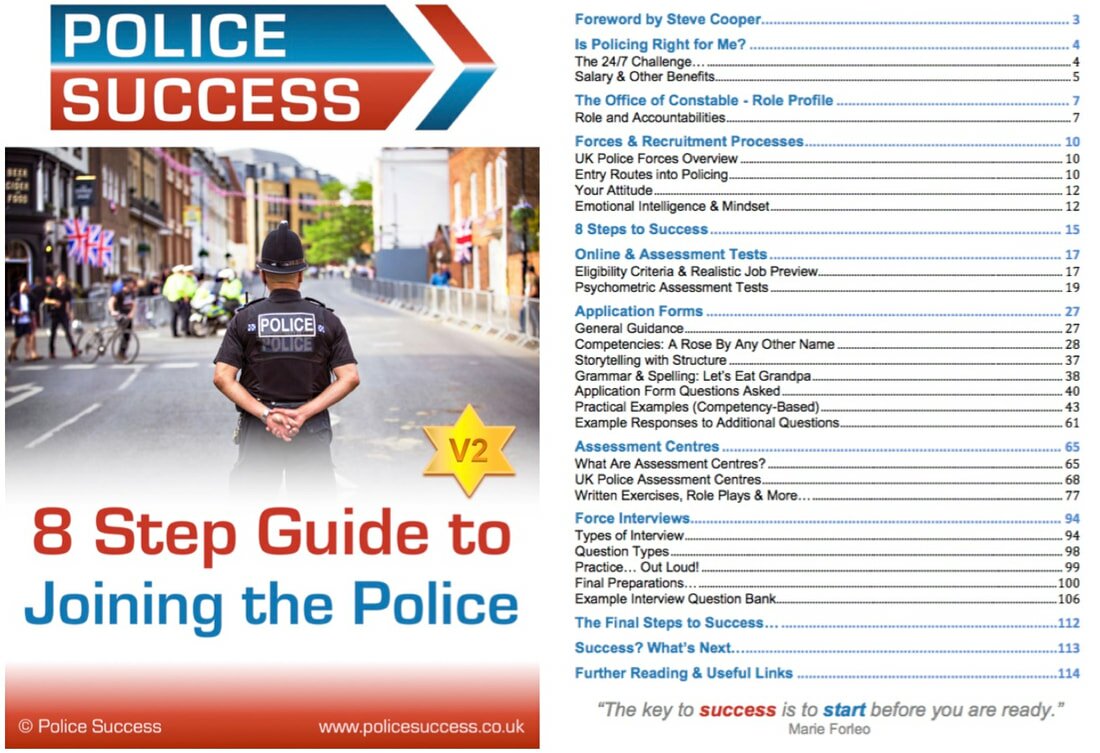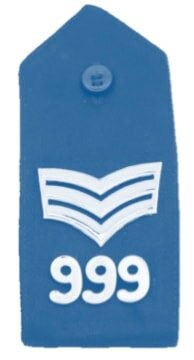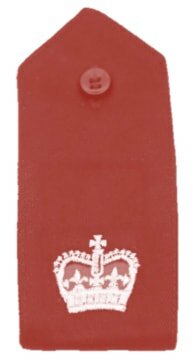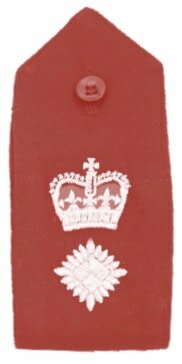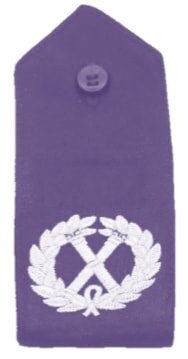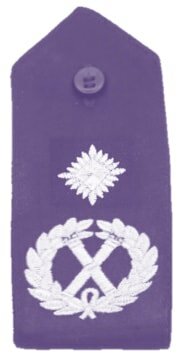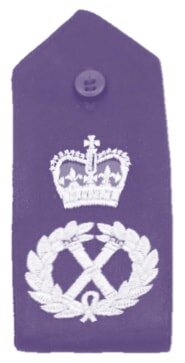UK Police Officer Rank Structure
This page provides information about the rank structure of UK police forces, covering England, Wales, Scotland and PSNI. This includes a role summary, typical salary and links to further information. These are the general ranks for each force, noting that some forces use bespoke insignia (e.g. PSNI) or have additional bespoke ranks at the 'Chief Officer' level (e.g. 'Commissioners' in the Metropolitan Police'). You'll also find the phonetic alphabet on this page.
Police officers often address those holding higher ranks as 'Sir' (male) or 'Ma'am' (female). The salutation is to respect the authority of the rank itself, but colloquially also the individual holding it. 'Ma'am' is pronounced rhyming with 'farm' (i.e. not 'jam'). To be gender-neutral, more senior ranks can be formally addressed simply by their rank, e.g. 'Yes, Inspector'. Ranks up to Chief Superintendent may be prefixed with 'Detective', to signify a specialism in crime investigation.
There are many ranks from Police Constable to Chief Officer levels and the police officer salary can range from £20,000 upon joining to £214,000 for the Chief Constable of Police Scotland and £293,000 for the most senior police officer in the UK, the Commissioner of the Metropolitan Police. A summary of the UK police force ranks is listed below, before we detail each...
Police officers often address those holding higher ranks as 'Sir' (male) or 'Ma'am' (female). The salutation is to respect the authority of the rank itself, but colloquially also the individual holding it. 'Ma'am' is pronounced rhyming with 'farm' (i.e. not 'jam'). To be gender-neutral, more senior ranks can be formally addressed simply by their rank, e.g. 'Yes, Inspector'. Ranks up to Chief Superintendent may be prefixed with 'Detective', to signify a specialism in crime investigation.
There are many ranks from Police Constable to Chief Officer levels and the police officer salary can range from £20,000 upon joining to £214,000 for the Chief Constable of Police Scotland and £293,000 for the most senior police officer in the UK, the Commissioner of the Metropolitan Police. A summary of the UK police force ranks is listed below, before we detail each...
|
Metropolitan Police
|
City of London Police
|
UK Forces
|
|
Commissioner
|
Commissioner
|
-
|
|
Deputy Commissioner
|
-
|
-
|
|
Assistant Commissioner
|
-
|
Chief Constable
|
|
Deputy Assistant Commissioner
|
Assistant Commissioner
|
Deputy Chief Constable
|
|
Commander
|
Commander
|
Assistance Chief Constable
|
|
Chief Superintendent
|
Chief Superintendent
|
Chief Superintendent
|
|
Superintendent
|
Superintendent
|
Superintendent
|
|
Chief Inspector
|
Chief Inspector
|
Chief Inspector
|
|
Inspector
|
Inspector
|
Inspector
|
|
Sergeant
|
Sergeant
|
Sergeant
|
|
Constable
|
Constable
|
Constable
|
Police Constable
The Office of Constable is the starting rank for most who join policing. Our '8 Steps to Join the Police' guide is designed to help you each step of the way.
The salary of police constables generally starts at £20,000 - £26,000 depending on force, increasing to £41,000 after 7 years service (or 10 years in Police Scotland). This excludes additional allowances paid to officers based on force 'weighting', role types, and other allowances. The role is the practitioner level of policing (CVF Level 1), and essentially entails the prevention and detection of crime. Roles can include response, neighbourhood, detective, firearms and many other specialisms. This is the first of the 'federated' ranks (PC to Chief Inspector) and is represented by local and national 'Police Federation'. More info and support in our guide to joining the police! |
Sergeant
Police Sergeants are the first supervisory rank in policing and generally remain operational. It's a tough job, but the first in a rewarding career of formal police leadership ranks. The rank of Sergeant is signified by three chevron stripes on the arms or epaulettes (these point upwards in PSNI). The salary of Sergeants generally ranges between at £43,000 - £46,000, increasing incrementally with each year of service.
In police promotion, the Sergeant's role is generally assessed at CVF Level 2. Here's how the College of Policing describes the Sergeant's role. Roles can include response, neighbourhood, detective, custody and many other specialisms. |
Inspector
Inspectors remain mostly operational and this third level of policing is considered a middle-manager. Inspectors begin to take a more strategic perspective on operational policing matters. Inspectors have two 'pips' on their epaulettes, formally called 'Order of the Bath' stars, or 'Bath Stars'. The Inspector salary generally ranges between at £53,000 - £59,000 depending on location, increasing incrementally with each year of service.
In police promotion, the Inspector's role is generally assessed at CVF Level 2. Here's how the College of Policing describes the Inspector's role. Roles can include response, neighbourhood, detective and other specialisms. Some forces in England & Wales offer 'direct entry' at the rank of Inspector for those wishing to join policing at a more senior level. |
Chief Inspector
The use of Chief Inspectors varies between forces and is considered an upper-middle manager level, overseeing large teams and resources. This fourth tier of policing is the final rank represented by the staff association called the 'Police Federation'. The insignia of Chief Inspectors is three 'pips' on their uniform epaulettes, formally called 'Order of the Bath' stars, or 'Bath Stars'. The Chief Inspector salary generally ranges between at £58,000 - £63,000 depending on location, increasing incrementally with each year of service.
In police promotion, the Chief Inspector's role is generally assessed at CVF Level 2. Here's how the College of Policing describes the Chief Inspector's role. |
Superintendent
The Superintendent rank is the first of the senior manager levels within policing and are represented by the staff association called the 'Superintendents Association'. They oversee large and/or complex departments and resources, while often carry responsibility for a specific policy or policing area. They are also often the senior decision-maker during significant operational incidents. The insignia of Superintendents is a single crown worn on their uniform epaulettes. The Superintendent salary generally ranges between at £70,000 - £82,000 depending on location, increasing incrementally with each year of service.
The Superintendent's role is generally assessed and described Level 3 of the CVF used in forces. Superintendents Here's how the College of Policing describes the Superintendent's role. Some forces in England & Wales offer 'direct entry' at the rank of Superintendent for those wishing to join policing at a much more senior level. |
Chief Superintendent
Chief Superintendent is the final rank before reaching the 'Chief Officer' level of policing. They oversee multiple, large and/or complex departments and resources, while often carry responsibility for specific policy or large policing areas (such as a 'Basic Command Unit' [BCU]). They play a lead role during major incidents. The insignia of Chief Superintendents is a single crown and a pip, worn on uniform epaulettes. The Chief Superintendent salary generally ranges between at £87,000 - £92,000 depending on location, increasing incrementally with each year of service.
The Chief Superintendent's role is generally assessed and described Level 3 of the CVF used in forces. Here's how the College of Policing describes the Chief Superintendent's role. |
Assistant Chief Constable
Assistant Chief Constables (ACCs) are the first within the 'Chief Officer' ranks, equivalent to the executive level in other organisations. The Met Police and City of London Police define this level as a 'Commander'. They are responsible for major organisational portfolios (e.g. 'Crime' or 'Local Policing') and/or policing territories, while implementing the force vision and strategy. Chief Officers in England & Wales are all part of the National Police Chiefs Council and also hold national portfolios.
The ACC rank badge depicts crossed tipstaves in a laurel wreath, and is worn on uniform epaulettes. The ACC salary ranges between at £106,000 - £119,000, increasing incrementally with each year of service. Here's how the College of Policing describes the ACC's role. |
Deputy Chief Constable
Deputy Chief Constables (DCCs) are part of the 'Chief Officer' level of policing. They are responsible for supporting the Chief Constable in leading the force. The Met Police and City of London Police instead define this level as 'Deputy Assistant Commissioner' and 'Assistant Commissioner' respectively.
The DCC rank badge depicts crossed tipstaves in a laurel wreath with one Bath Star, and is worn on uniform epaulettes. The DCC salary ranges between at £123,000 - £157,000, depending on force. In Police Scotland this rises to £175,000 Here's how the College of Policing describes the DCC's role. |
Chief Constable
The Chief Constables is the most senior rank in all forces outside London. They are responsible for leading the force and setting out its vision for the future.
The Chief Constable's rank badge depicts crossed tipstaves in a laurel wreath with one crown, and is worn on uniform epaulettes. Chief Constable's salary ranges between at £146,000 - £204,000, depending on force. In Police Scotland this rises to £214,000 Here's how the College of Policing describes the Chief Constable's role. |
London Police Forces...
The Met Police use the following ranks for their 'Chief Officer' level:
The City of London Police also use a Commissioner, Assistant Commissioner and Commander senior structure.
Here's how the College of Policing describes the most senior roles within London.
- Commander - equivalent to Assistant Chief Constable in other England & Wales forces
- Deputy Assistant Commissioner - equivalent to Deputy Chief Constable in other England & Wales forces
- Assistant Commissioner - equivalent to Chief Constable in other England & Wales forces
- Deputy Commissioner
- Commissioner - Currently Dame Cressida Dick. 2020 salary is £293,000 (for context, this is nearly double the UK Prime Minister salary)
The City of London Police also use a Commissioner, Assistant Commissioner and Commander senior structure.
Here's how the College of Policing describes the most senior roles within London.
What Is the Police Phonetic Alphabet?
Since you're here learning about the police, why not brush up on your phonetic alphabet knowledge? This is used in regular police communications to ensure clarity and avoid (potentially fatal!) errors...
|
A - Alpha
B - Bravo C - Charlie D - Delta E - Echo F - Foxtrot |
G - Golf
H - Hotel I - India J - Juliet K - Kilo L - Lima |
M - Mike
N - November O - Oscar P - Papa Q - Quebec R - Romeo |
S - Sierra
T - Tango U - Uniform V - Victor W - Whiskey X - X-Ray |
Y - Yankee
Z - Zulu |
Free Police Promotion Guides & More
For free police promotion guides and comprehensive support through the Federated ranks, visit www.ranksuccess.co.uk.


